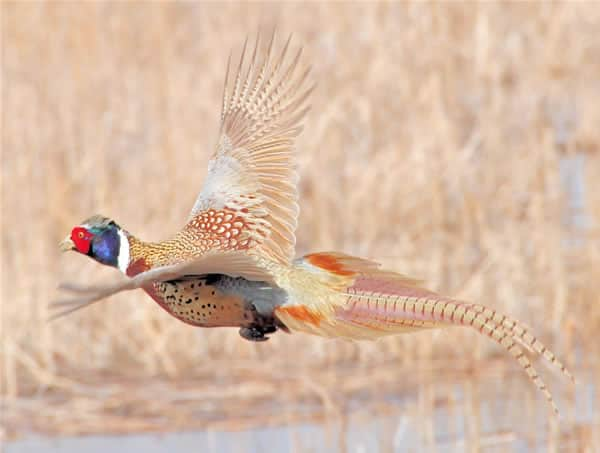Iowa Begins Ambitious Project to Create Upland Habitat
OutdoorHub Reporters 06.19.14

The Iowa Department of Natural Resources is now recruiting landowners for participation in a project that could save up to 50,000 acres for pheasant habitat. The Iowa Pheasant Recovery: State Acres for Wildlife Enhancement (SAFE) program is now reopening enrollment for landowners who want to return pheasants to their property. As a continuous Conservation Reserve Program (CRP), landowners will be reimbursed based on the quality of their land and length of their contract, as well as an initial sign-up bonus of $100 per acre. So far 4,000 acres have already been registered, and officials say the program is “first come, first serve.”
“There will not be a general CRP signup this year so this is an option that landowners with expiring general CRP should consider,” Todd Bogenschutz, Upland wildlife Biologist for the Iowa Department of Natural Resources (DNR), said in a press release.
The program is designed to restore the native grasslands and wetlands vital to ring-necked pheasants, especially in areas where suitable habitat had been previously eliminated. The DNR is placing an emphasis on creating quality winter and nesting habitat in an attempt to boost statewide pheasant populations. Officials estimate that the program can increase Iowa hunters’ annual harvest by as many as 100,000 roosters. Other grassland species will also benefit from the newly-created upland habitat, including dickcissel, bobolink, and eastern meadowlarks.
“We’ve heard from landowners who want to return pheasants to their property, and this is the program that’s specifically designed to do it,” said Jared Wiklund, Pheasants Forever’s Regional Representative in southern Iowa, “The Iowa Pheasant Recovery SAFE is open to landowners in most Iowa counties, and our team of Farm Bill Biologists is eager to work with farmers and ranchers to add upland habitat while helping improve their business operations.”
Along with the USDA and the US Fish and Wildlife Service, Pheasants Forever is working with the DNR to provide landowners with information about the SAFE program. Eligible practices will include establishing native grasses, winter cover, and food plots. The DNR is also encouraging landowners with an eye on the future to plant trees to reduce flood damage as well as buffer or filter strips to improve water quality and halt land degradation.
“The forest planted today provides future benefits including income, hunting opportunities and reduced erosion,” stated DNR deputy director Bruce Trautman.

